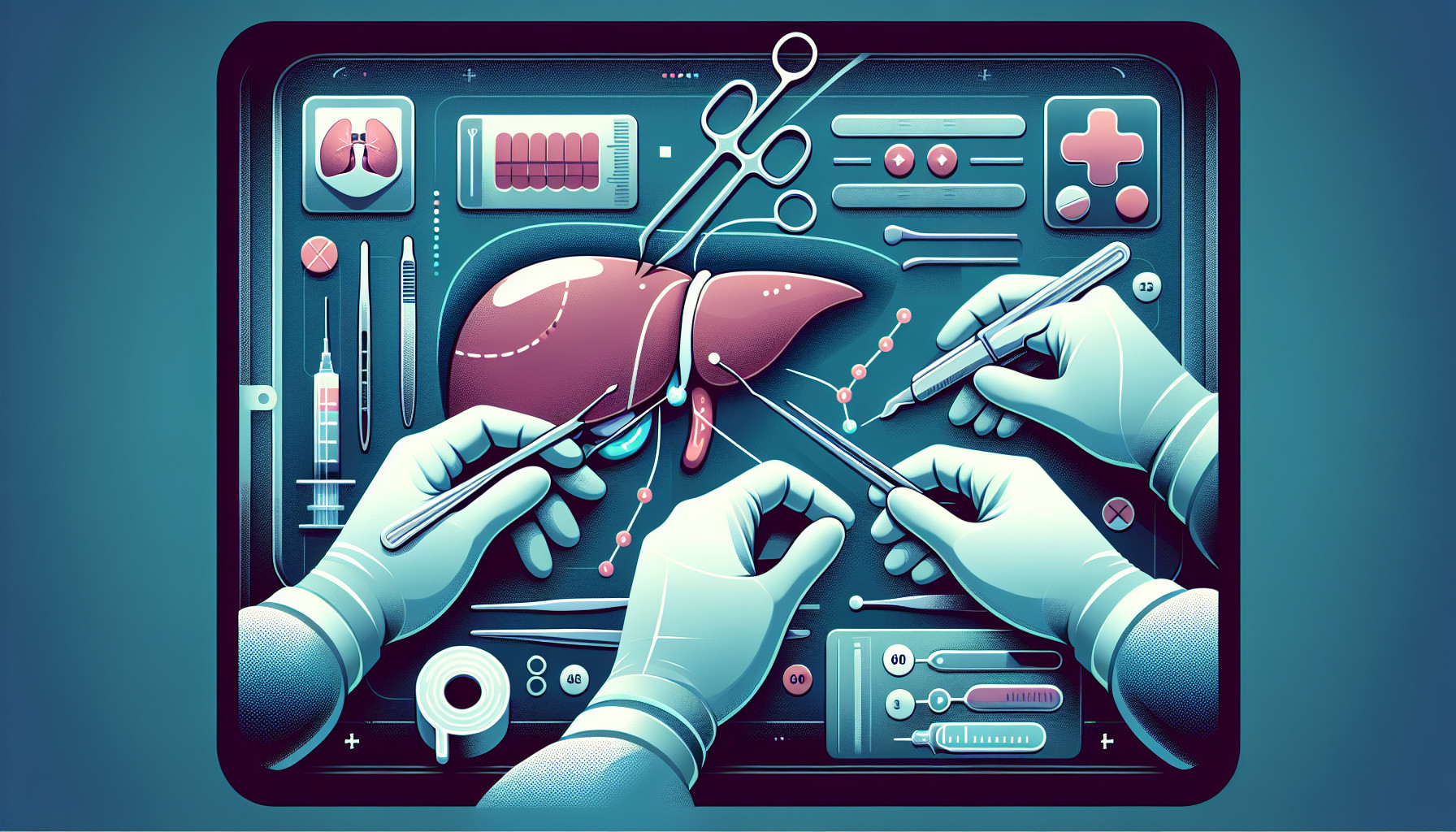Our Summary
This research paper is about a study that compared two methods of obtaining liver samples (biopsies) from patients who had a liver transplant and were suspected of having organ rejection. The two methods used were the Quick-Core biopsy needle and the forceps biopsy system.
The study involved 118 patients and took place from June 2015 to January 2017. There were two groups: one group of 60 patients had 98 biopsies taken using the Quick-Core biopsy needle, while the other group of 58 patients had 95 biopsies done using the forceps biopsy system.
The researchers looked at several factors, such as how successful they were in getting a suitable sample, how many attempts it took to get a sample, the size of the sample taken, and any complications encountered.
They found that both methods were successful in getting a suitable sample. The needle group had a slightly higher success rate (95.9% vs 91.6% in the forceps group), but the difference was not statistically significant. The number of attempts to get a sample was lower in the needle group (4.8 vs 6.2 in the forceps group). The sample size was larger in the needle group (11.1 mm vs 2.5 mm in the forceps group). There was only one minor complication in the needle group and no major complications in either group.
The study concludes that both methods can be safely and effectively used in patients who have had a liver transplant. The ability to get a suitable sample for diagnosis was similar for both methods.
FAQs
- What is the purpose of the transjugular liver biopsy (TJLB) study conducted from June 2015 to January 2017?
- What was the success rate and adequacy of the specimens obtained using a Quick-Core biopsy needle and a forceps biopsy in patients with liver transplantation?
- Were there any complications observed in the patients who underwent TJLB using a Quick-Core biopsy needle or forceps?
Doctor’s Tip
One helpful tip a doctor might tell a patient about liver biopsy is to follow any pre-biopsy instructions carefully, such as fasting before the procedure. It is also important to inform the healthcare provider about any medications or supplements being taken, as some may need to be temporarily stopped before the biopsy. Additionally, it is important to follow post-biopsy care instructions, such as avoiding heavy lifting and strenuous activities for a certain period of time to prevent complications.
Suitable For
Patients who are typically recommended for liver biopsy include those with suspected liver diseases such as hepatitis, cirrhosis, fatty liver disease, autoimmune liver disease, and liver cancer. Patients who have abnormal liver function tests, unexplained jaundice, or abnormal imaging findings may also be recommended for a liver biopsy. Additionally, patients who have undergone liver transplantation and are suspected of having rejection may also undergo a liver biopsy to assess the status of the transplanted liver.
Timeline
Before the liver biopsy:
- The patient will undergo a consultation with their healthcare provider to discuss the need for a liver biopsy and the risks and benefits associated with the procedure.
- The patient may undergo pre-procedure tests such as blood tests, imaging studies, and liver function tests to assess their overall health and suitability for the biopsy.
- The patient will be instructed to avoid eating or drinking for a certain period of time before the procedure.
- The patient may be given sedatives or anesthesia to help them relax during the procedure.
After the liver biopsy:
- The patient will be monitored closely for a few hours after the procedure to check for any immediate complications such as bleeding or infection.
- The patient may experience some pain or discomfort at the biopsy site, which can be managed with pain medication.
- The patient will be advised to avoid strenuous activities for a few days after the biopsy to allow the liver to heal.
- The patient will follow up with their healthcare provider to discuss the results of the biopsy and any further treatment or monitoring that may be needed.
What to Ask Your Doctor
- What is the purpose of the liver biopsy in my specific case?
- How will the biopsy be performed? Will it be transjugular liver biopsy using a Quick-Core biopsy needle or forceps biopsy?
- What are the potential risks and complications associated with the liver biopsy procedure?
- How long will it take to recover from the biopsy procedure?
- How soon will I receive the results of the biopsy?
- What follow-up care or monitoring will be required after the biopsy?
- Will the biopsy results affect my treatment plan or medication regimen?
- Are there any specific instructions I need to follow before or after the biopsy procedure?
- Are there any alternative diagnostic tests or procedures that could be considered instead of a liver biopsy?
- Are there any specific factors or conditions that may affect the accuracy or reliability of the biopsy results in my case?
Reference
Authors: Kim GH, Gwon DI, Ko GY, Sung KB. Journal: Cardiovasc Intervent Radiol. 2021 Apr;44(4):574-579. doi: 10.1007/s00270-020-02724-x. Epub 2021 Jan 4. PMID: 33398595
